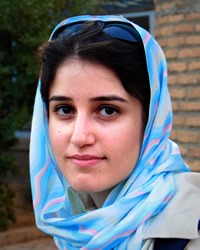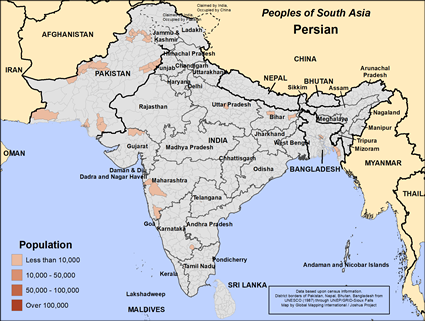By definition, Persians (also known as Iranians) are an ethnic group native to Iran. The Persian language, called Farsi, is part of the Indo-Iranian language family, and is the official language of Iran. Dari, the language of the elite in Afghanistan, is a dialect of modern Farsi. Around 1000 B. C., Persian groups began to settle in the territory that is now Iran. Loosely associated Persian tribes became a more cohesive political unit under the Achaemenian dynasty. Their unity soon made them the dominant ethnic group in the region.
For 1,200 years, Persia maintained a culture that became increasingly more complex and rigid. This laid the foundation for a successful Arabian conquest of Persia in the seventh century AD. It was not until the Islamic revolution of 1979 that massive changes came both to Iran and to the Persian people. Although the vast majority of Persians now live either in Iran or in one of the nearby Central Asian or Middle Eastern countries, they also live in Western countries like the United Kingdom.
The vast majority of Persians in the U.K. arrived as refugees after the 1979 Iranian Revolution. There was a small Persian population before that time. Many of them planned on remaining there only temporarily.
Today, there are two main groups among the Iranians living in the United Kingdom: those who have been there for decades and those who are new refugees. No matter how long they have been there, the Iranians are seeking ways to be heard and to have an impact on British culture.
They are not abandoning their ancient culture by any means. Persians have their own associations in the United Kingdom. There is the Iranian Association and the Iran Heritage Foundation, both dedicated to promoting their culture and art.
Yearning for freedom from control, many Iranian youth in the UK adopt some of the worst of the Western world's deviant and promiscuous behaviors. A small number of these Persians adhere to the strict religious principles of Shia Islam.
Prior to the Arab invasions, the Persian religion was Zoroastrianism. This religion taught that there was an eternal struggle between the forces of good and evil. Shia Islam became the national religion of Iran in the sixteenth century, at which time the ulama (clergy) began playing an important role in both the social and political lives of the people. Today, most Persians are Shia Muslims of the Ithna Ashari branch. Thanks to the excess of the Iranian government, a high percentage of Persians are secularized and tired of forced religion. That is especially true of the Persian diaspora in the West.
The Lord is growing his Church in Iran, and many have come to faith in recent years. Unfortunately, this does not seem to be affecting Persians in the UK.
Persians need their spiritual eyes will be opened. Some are staunch Shia Muslims while others are secularized. Who will reach them in the UK? Both groups need to understand the significance of Christ's death and resurrection.
Pray for Persian believers from Iran to take Christ to Persians in other countries including the UK.
Pray for a spiritual hunger among the Persian diaspora that will result in a movement to Christ in the UK and other European countries.
Pray for the Lord to show himself powerful and loving to the Persians in the UK.
Scripture Prayers for the Persian in United Kingdom.
https://en.wikipedia.org/wiki/Iranians_in_the_United_Kingdom
https://www.bbc.co.uk/programmes/b00gkqpm
| Profile Source: Joshua Project |













